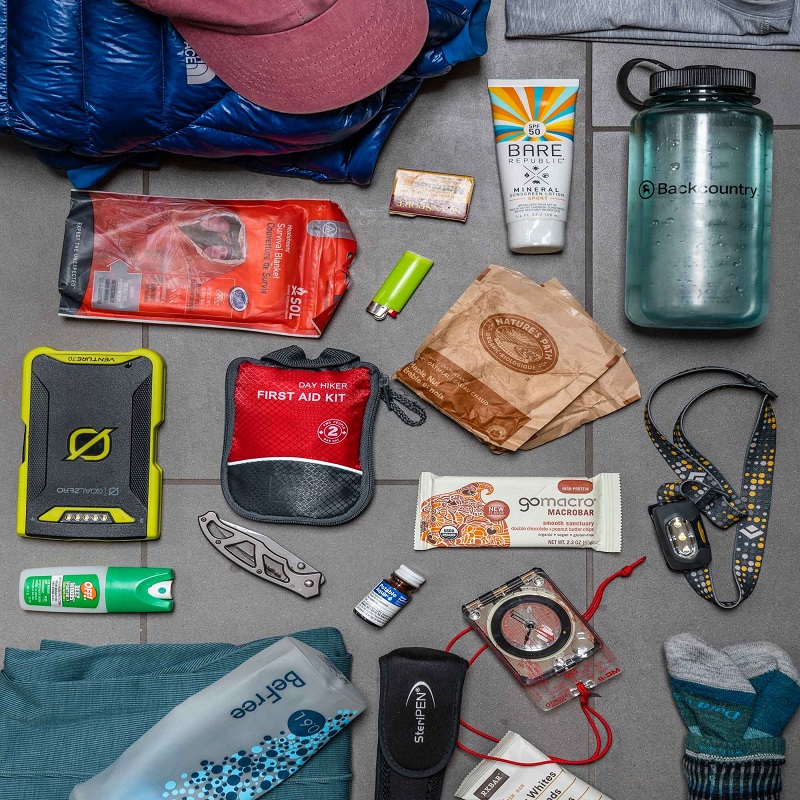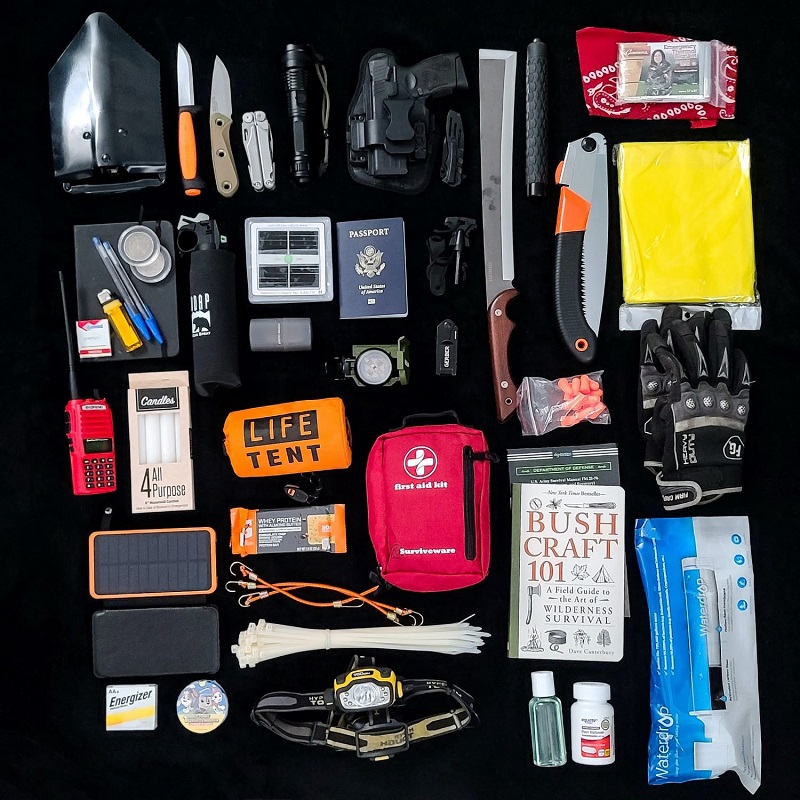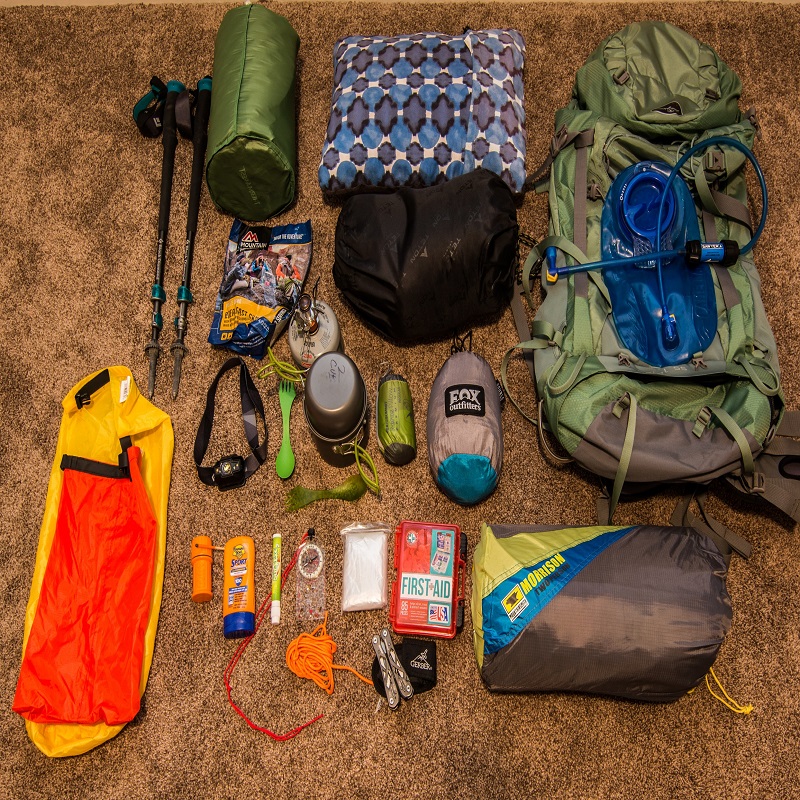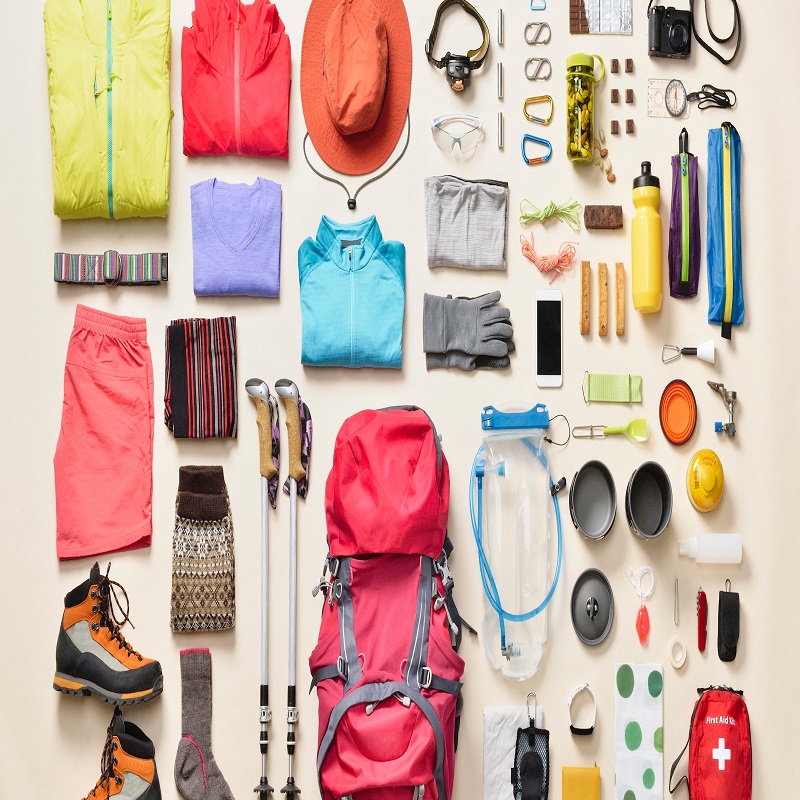Whether you’re a seasoned hiker or a beginner, having the right hiking necessities is essential for a safe and enjoyable experience. In this article, we’ll explore the hiking necessities that every hiker should have to ensure a successful outdoor adventure.

Hiking is a popular outdoor activity that allows you to connect with nature, escape the hustle and bustle of city life, and challenge yourself physically and mentally.
Essential Clothing
One of the most important hiking necessities is appropriate clothing. Dressing in layers is key to staying comfortable and adjusting to changing weather conditions. A moisture-wicking base layer helps to keep sweat away from your skin, while a mid-layer provides insulation, and an outer layer protects against wind and rain. Additionally, wearing comfortable, moisture-wicking socks and sturdy, supportive hiking boots is crucial for preventing blisters and foot fatigue on the trail.
Backpack
A properly fitting backpack is essential for carrying all of your hiking gear and supplies. Look for a backpack with padded shoulder straps, a hip belt for weight distribution, and multiple compartments for organization. The size of your backpack will depend on the length of your hike and the amount of gear you need to carry, so choose a backpack that suits your specific needs.
Knowing where you are and where you’re going is crucial for a safe hiking experience. Carry a map of the area, a compass, and a GPS device to help you navigate the trail. Familiarize yourself with trail markers and signs, and always let someone know your planned route and expected return time.
Water and Hydration
Staying hydrated is essential while hiking, especially in warm weather or at higher elevations. Carry an adequate supply of water and a water filtration system to ensure access to clean drinking water on the trail. It’s also a good idea to bring electrolyte tablets or sports drinks to replenish lost minerals and prevent dehydration.

Nutritious Snacks
Maintaining energy levels on the trail is important, so pack a variety of lightweight, nutrient-dense snacks such as trail mix, energy bars, fruits, and nuts. Plan to eat small, frequent snacks throughout your hike to keep your energy levels up and avoid fatigue.
First Aid Kit
Accidents can happen on the trail, so it’s important to carry a basic first aid kit with essentials such as bandages, gauze, adhesive tape, antiseptic wipes, pain relievers, and blister treatment. Additionally, consider taking a basic first aid course to learn essential wilderness first aid skills.
Emergency Shelter
It’s always a good idea to be prepared for unexpected changes in weather or other emergencies. Carry a lightweight, compact emergency shelter such as a tent, tarp, or bivy sack to provide protection from the elements if you’re unable to reach your intended destination.
Emergency Communication
In case of an emergency, it’s important to have a reliable means of communication. Carry a fully charged cell phone, a portable charger, and a whistle to signal for help if needed. Consider investing in a personal locator beacon or satellite messenger for additional peace of mind.
Protection from the Elements
Weather conditions can change quickly while hiking, so be prepared for sun, rain, wind, and cold temperatures. Pack sunscreen, sunglasses, a hat, a rain jacket, and extra layers to protect yourself from the elements. It’s also a good idea to carry a lightweight, packable tarp or umbrella for additional protection.
How to choose hiking necessities
Hiking is a wonderful way to explore nature, get some exercise, and enjoy the great outdoors. However, to have a successful and enjoyable hike, it’s essential to have the right gear. Choosing the right hiking necessities can be a daunting task, with so many options available on the market.
Understanding Your Needs
Before you start selecting hiking gear, it’s important to understand your individual needs and preferences. Consider the type of terrain you’ll be hiking on, the climate, the duration of your hike, and any special requirements you may have. For example, if you’ll be hiking in a mountainous region, you’ll need gear that is suitable for rough and steep terrain. If you’re hiking in the desert, you’ll need to focus on sun protection, hydration, and lightweight equipment. Understanding your needs will help you prioritize the essential hiking necessities for your specific adventure.

Apparel
One of the most important hiking necessities is the right apparel. Choosing the right clothing for your hike can make a huge difference in your comfort and safety. Look for moisture-wicking and quick-drying fabrics, especially if you’ll be hiking in variable weather conditions. Layers are also essential, so you can easily adjust your clothing as your body temperature changes throughout the day. Additionally, don’t forget to invest in a good pair of hiking boots or shoes that provide support, traction, and protection for your feet.
Backpack
A good backpack is essential for carrying all your gear and supplies during a hike. When choosing a backpack, consider the size and capacity you’ll need, as well as the design and features that are important to you. Look for a backpack with multiple compartments, padded straps for comfort, and a durable construction that can withstand the rigors of hiking. Make sure to try on several options to find the one that fits your body comfortably and distributes weight evenly.
Shelter
If you’ll be hiking overnight or on multi-day trips, a shelter is an essential necessity. Tents come in various sizes, designs, and materials, so consider factors such as weight, ease of setup, and weather resistance when choosing a tent. Additionally, don’t forget to pack a sleeping bag and sleeping pad for warmth and comfort during the night.
Having the right navigation tools is crucial for a successful hike, especially if you’ll be exploring unfamiliar terrain. A map and compass are essential traditional tools, but GPS devices and smartphone apps have become increasingly popular for hikers. Consider your navigational needs and the reliability of the tools available to make the right choice.
Hydration and Nutrition
Staying hydrated and well-nourished is vital during a hike, so make sure to bring along a suitable water bottle or hydration system. Additionally, pack lightweight, high-energy snacks and meals to keep you fueled throughout the day. Consider factors such as weight, storage, and ease of preparation when selecting hydration and nutrition necessities.
First Aid Kit
Accidents and injuries can happen during a hike, so it’s important to carry a well-stocked first aid kit. Look for a kit that includes essentials such as adhesive bandages, gauze, antiseptic wipes, pain relievers, and treatment for blisters and insect bites. Additionally, consider any specific medical needs you may have and pack accordingly.
Environmental Considerations
When choosing hiking necessities, it’s important to consider the impact of your gear on the environment. Look for sustainable and eco-friendly options, such as reusable water bottles, biodegradable soaps, and environmentally-friendly materials. Additionally, follow Leave No Trace principles by minimizing your impact on the natural surroundings and packing out all of your trash.

Conclusion
Having the right gear and supplies is essential for a safe and enjoyable hiking experience. By being prepared with the necessary clothing, navigation tools, hydration and nutrition, first aid kit, emergency shelter, communication devices, and protection from the elements, you’ll be well-equipped for any adventure on the trail. Remember to always research and plan for the specific conditions of your hike, and prioritize safety while enjoying the beauty of the great outdoors. Happy hiking!
